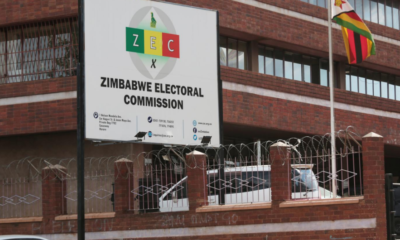
THE Zimbabwe Electoral Commission (Zec) has intensified efforts for political parties to be legally registered through an amendment of the Electoral Act.
Under current law, political parties just notify the electoral body of their existence without undergoing any rigorous processes.
In an interview this week, Zimbabwe Electoral Commission chief elections officer Utloile Silaigwana said the issue of registration of political parties was one of the recommendations made during the just-ended annual conference.
“The Zimbabwe Electoral Commission would like to express its gratitude to stakeholders for the successful conduct of the post-2023 harmonised elections review conference in Nyanga recently,” he said.
“The goal of the conference was to reflect on the 2023 harmonised elections in order to adequately prepare for the 2028 electoral cycle. The overarching guiding questions at the conference interrogated what worked well and what did not.
“The conference came up with recommendations to improve the legal framework governing the country’s elections and the administrative framework. It is hoped that these recommendations, including the one that seeks the registration and regulation of political parties become part of the electoral law.”
Silaigwana said political parties should bury the 2023 election grievances and look forward to 2028 elections.
“The commission urges all Zimbabweans to move on from the 2023 harmonised elections and focus on the 2024-28 electoral cycle. Those who have grievances are urged to seek redress in appropriate fora such as Parliament and the courts. The commission reserves its right to seek redress in the face of blatant allegations levelled against it,” he said.
- RG's Office frustrating urban voters: CCC
- Fast-track delimitation, Zec urged
- 'Political parties must not be registered'
- Zec to address nomination fees outcry
Keep Reading
However, Citizens Coalition for Change spokesperson Promise Mkwananzi said registration of parties would help with resolution of disputes over leadership of political entities.
“We await the proposed modalities. What we want is an enabling environment for multiparty democracy and an end to stealing [Nelson] Chamisa’s parties by Zanu PF stooges and mercenaries,” he said.
“All MPs and councillors elected through Chamisa’s ticket must be answerable to Chamisa’s party and the political finance due to him and his party must be duly disbursed to him and his party.
“If the registration achieves this end and removes any chance for the masquerades, then it will be desirable. What we do not want is a registration process that seeks to stifle rather than facilitate multipartysm, that gives political parties the latitude to define their own internal democracy and systems not the prescribe for them or seek to impose or influence who their leaders will be and how they should lead.”
He called on political actors to respect democracy and electoral outcomes.
Movement for Democratic Change presidential spokesperson Lloyd Damba said there was nothing wrong about the registration of political parties, but it was not Zec’s mandate to advocate that.
“In other countries within Africa, we have similar laws that require the registration of political parties, in particular Kenya. They have their reasons for that and I do not see anything wrong with that particular move,” he said.
“It becomes sinister when a body that is not mandated by any law to advocate for the registration of political parties, when its duties are clearly stipulated in the Constitution [sic].
“They want politics to be a game of the rich in particular those that are looting mineral resources and tenderprenuers.”










